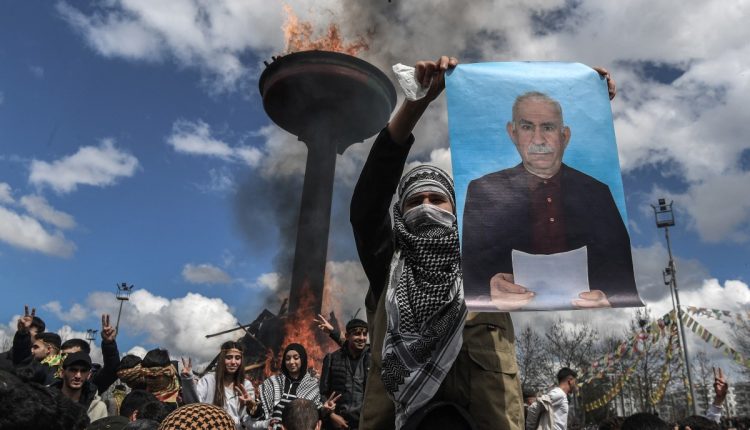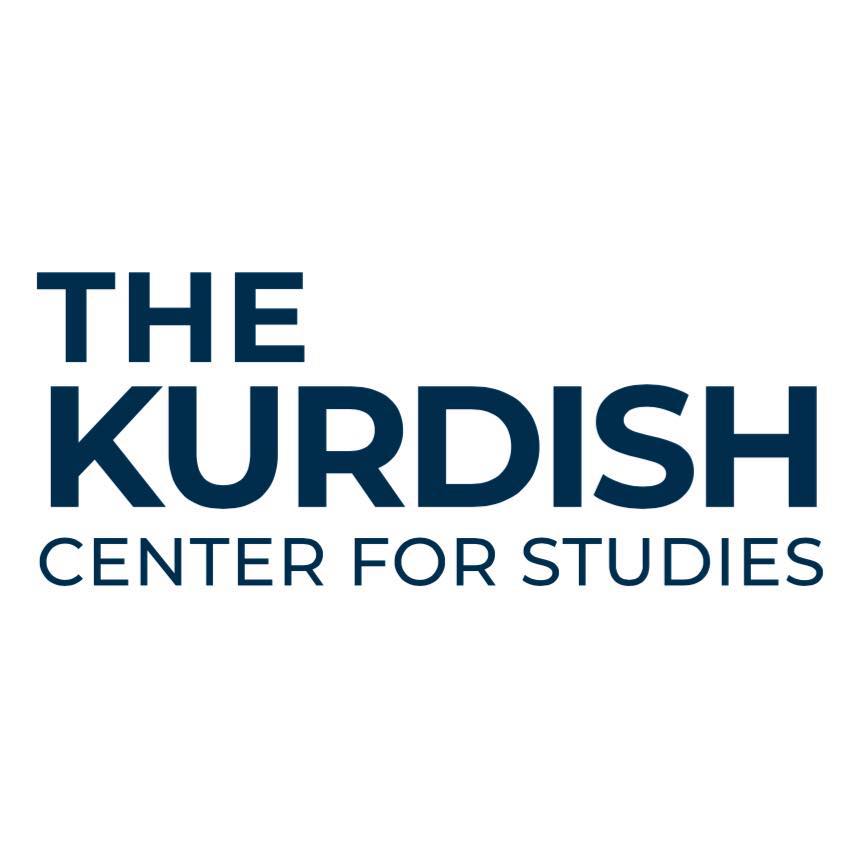Erdoğan and the Kurdish Movement: Negotiations Under Fire
By The Kurdish Center for Studies
On the night of Sunday, March 16, 2025, Turkish army forces committed a massacre in the village of Barukh Butan in the Kobanê region by bombing the house of a Kurdish family. The bombing resulted in the deaths of nine family members, most of whom were children.
This atrocity fits into a seemingly consistent policy of launching military attacks and operations both inside and outside Turkey, despite the Turkish government’s stated commitment to dialogue with the PKK (Kurdistan Workers’ Party) aimed at resolving the Kurdish issue. This dialogue follows the historic call presented by Kurdish leader Abdullah Öcalan on February 27, 2025, for “Peace and a Democratic Society,” which proposed abandoning armed struggle in exchange for consolidating a democratic society in Turkey and addressing the Kurdish issue. Additionally, the Syrian Democratic Forces (SDF) have signed an agreement with the interim authority in Damascus to settle all pending issues between the two parties by the end of this year.
The Turkish state remains committed to the military option, viewing it as integral to the negotiation process with the Kurdish side. It considers all “fronts” as interconnected and aims to exert influence over them, believing that this will weaken the Kurdish side and compel it to make further concessions at the negotiating table or accept the terms dictated by Ankara for a peace agreement that would end the armed struggle of the Kurds in Turkey. Consequently, the Turkish state is waging war against the Kurdish movement on all fronts, believing that any harm inflicted on the Kurds will undermine and weaken its negotiating counterpart, the PKK. Moreover, Turkey sees the militia formations it employs against the Kurds as tools of Turkish warfare, intended to strike at Kurdish structures, manifestations, and ambitions everywhere. This includes armed groups that the Turkish army oversees their armament and financing both inside Turkey and in the Kurdistan Region (Iraqi Kurdistan). This also applies to the factions of the ‘National Army’ that are fighting the Syrian Democratic Forces in the vicinity of the Tishrin Dam and the Qaraqozak Bridge..
The Turkish “military response” to the Kurds and their organizational structures is characterized by excessive violence, which falls within the framework of state terrorism and organized war crimes. It constitutes collective punishment of a specific population group and acts of vengeance that affect civilians as much as armed groups. Over the past years of its war against the Kurds and their movement, Turkey has established a considerable legacy of cruelty and oppression. It has developed military, security, and intelligence mechanisms to target every Kurdish entity or movement it perceives as a challenge to its longstanding policy of denial and national assimilation.
Ankara has also devised ways to evade direct responsibility for the crimes committed against the Kurds, which international law classifies as “war crimes against humanity.” It has employed militias, jihadist factions, and paid mercenaries in the battle against the Kurds, both inside and outside Turkey. The Turkish military has directly committed clear war crimes against the Kurds, including during the Trench War (2015-2016) and through its allied factions (known as the National Army) during the occupation of Afrin in 2018 and Ras al-Ayn and Tal Abyad in 2019. Prior to that, jihadist organizations, most of whose fighters entered Syria and Iraq through Turkish airports and ports, participated in ISIS’s attack on the Sinjar district in Iraq in 2014, which resulted in the massacres of Yazidi Kurds, followed by ISIS’s massive assault on the city of Kobanê in 2014-2015.
Following the recent developments in the Middle East, including the attack by the Palestinian Hamas movement that resulted in the deaths of 1,200 Israeli civilians and soldiers, the Israeli government responded by targeting the movement’s leaders and launching a military operation in the Gaza Strip that claimed thousands of civilian lives. This escalated to attacks on Lebanon, targeting Hezbollah and assassinating its leaders, as well as bombings in Iran and against the Houthis in Yemen, strikes on the Syrian regime, and discussions in Tel Aviv about entering a new phase that utilizes force to “change maps” and “draw borders.”
In this context, the Turkish state recognized the necessity of negotiating with the Kurdish movement and its leader, Abdullah Öcalan, to find a political solution aimed at ending the armed struggle and the confrontations between the state and the Kurds. Despite Öcalan’s initiative and his call for the PKK to hold its congress and announce an end to the armed struggle, transitioning into a phase of democratic construction and genuine partnership with the Turkish state—an offer accepted by the PKK—the Turkish government has not ceased its reliance on armed conflict and military resolution.
Instead, it has responded to the Kurdish overture by escalating military operations and employing maximum brute force. The daily attacks on PKK strongholds in the Qandil Mountains, the PKK bases within Turkey, and the SDF by pro-Ankara Syrian factions illustrate Ankara’s persistent commitment to its policy of war and military resolution, as well as its determination to weaken the Kurdish movement and undermine its military capabilities to impose its vision for a “political solution.” The Turkish state has not abandoned its reliance on arms and military decisiveness.
Leaders of the PKK and officials from the Peoples’ Equality and Democracy Party (DEM Party) have highlighted the concentrated attacks by the Turkish army on the Kurdish side, both inside and outside Turkey, noting that these attacks hinder the ongoing negotiation process. They emphasized that to demonstrate goodwill and the state’s seriousness regarding a political solution, it is essential to end military operations. They warned against exploiting the situation by declaring a PKK ceasefire, which would merely serve to improve the field position of the Turkish army and its allied factions, allowing for further military assaults aimed at eliminating and weakening the Kurdish side’s military capabilities.
Recently, the Turkish military’s attacks—following the murder of an entire family in Kobani and ongoing aerial bombardments leading up to March 21, the date of the Kurdish national celebration, Newroz—have adversely impacted the peace process. PKK leaders have stated that the continued military attacks, artillery shelling, and aerial bombardment by the Turkish army will be met with a response under the legitimate right to self-defense. Murat Karayilan, a member of the PKK’s leadership committee, commented in an interview with Channel 8 that Turkish Foreign Minister Hakan Fidan and Defense Minister Yashar Güler are playing a very negative role by insisting on the military option and disseminating false information by claiming that the PKK is weak and divided. Karayilan stressed that it is clear that Fidan and Güler aim to undermine the current phase of dialogue and revert to maximizing warfare and military operations, thereby dragging Turkey into a new cycle of confrontation.
The Turkish state seeks to implement a “negotiations under fire” diplomacy similar to that which Washington practiced in Vietnam. This approach involves using as much firepower as possible, engaging in a scorched earth policy, and committing horrific massacres against civilians in a deliberate and indifferent manner. To extract concessions from the Vietnamese resistance during the negotiations held in Paris at the end of 1972, US leadership, upon the advice of Secretary of State Henry Kissinger, deemed it necessary to employ overwhelming force at the front lines. This tactic aimed to place psychological and political pressure on the Vietnamese negotiating team, impacting their morale and compelling them to translate the heavy losses suffered on the ground into political concessions before the American negotiator.
Consequently, Washington deployed 200 B-52 strategic bombers to execute a total of 730 sorties over 12 days, dropping more than 20,000 tons of bombs on Hanoi. Kissinger aimed for this overwhelming US assault to instill a sense of psychological defeat in the Vietnamese negotiator, or, as he put it, to “shake the Vietnamese to their core.” However, the outcome was quite the opposite; the Vietnamese fighters demonstrated remarkable resilience, managing to shoot down 15 American planes from the attacking fleet and killing 33 pilots. They transformed what was intended as a psychological defeat into a victory marked by determination and self-confidence. The American euphoria thus became a psychological setback that could not be concealed, especially given that the downing of a symbol of American military capability had a profound adverse effect on the political and military leadership in Washington, as well as on the American soldiers entrenched in the Vietnamese quagmire, who awaited the results of the negotiations, longing for the moment when the war would officially end so they could escape the hell of the battlefield and return home alive.
The Kurdish movement understands the meanings and objectives behind the Turkish military escalation and recognizes that achieving peace with a state like Turkey necessitates thorough preparation for confrontation, addressing all existing gaps and shortcomings, and enhancing engagement mechanisms and deterrence capabilities. In January 2025, the Kurdistan People’s Defense Forces (the military wing of the PKK) held a conference with the participation of frontline commanders from both inside and outside Turkey, where they developed a comprehensive work program focused on improving warfare techniques and adapting to the modernizations Turkey has introduced to its military operations against the Kurdish movement.
Karayilan pointed out that they have successfully developed their own technology, which has neutralized the Turkish drone weapon and resulted in the downing of a total of 24 drones in less than a year. He explained that Kurdish leader Abdullah Öcalan’s recent initiative came after they adopted a new confrontation doctrine developed by their forces against Turkish military bases and troops. Despite their commitment to Öcalan’s initiative, they intend to implement the “military response program” if the Turkish state continues its attacks on their positions and fails to respond positively to the initiative proposed by their leader.
Öcalan and officials of the Kurdish movement expect practical and tangible steps from the Turkish government to translate the “peace and democratic solution” initiative into reality. They view the resolution of the Kurdish issue as the gateway for Turkey to enter the future as a state with democratic institutions. Without this resolution, Turkey risks descending into significant crises, perpetuating the waste of resources in its war against the Kurdish people, demonizing those who seek to end the legacy of oppression and warfare, and suspending the rule of law to persecute opponents. This would tighten the grip of the individual and the ruling party over power, leading to continued turmoil, chaos, and the squandering of resources on futile internal and external conflicts.




Comments are closed.